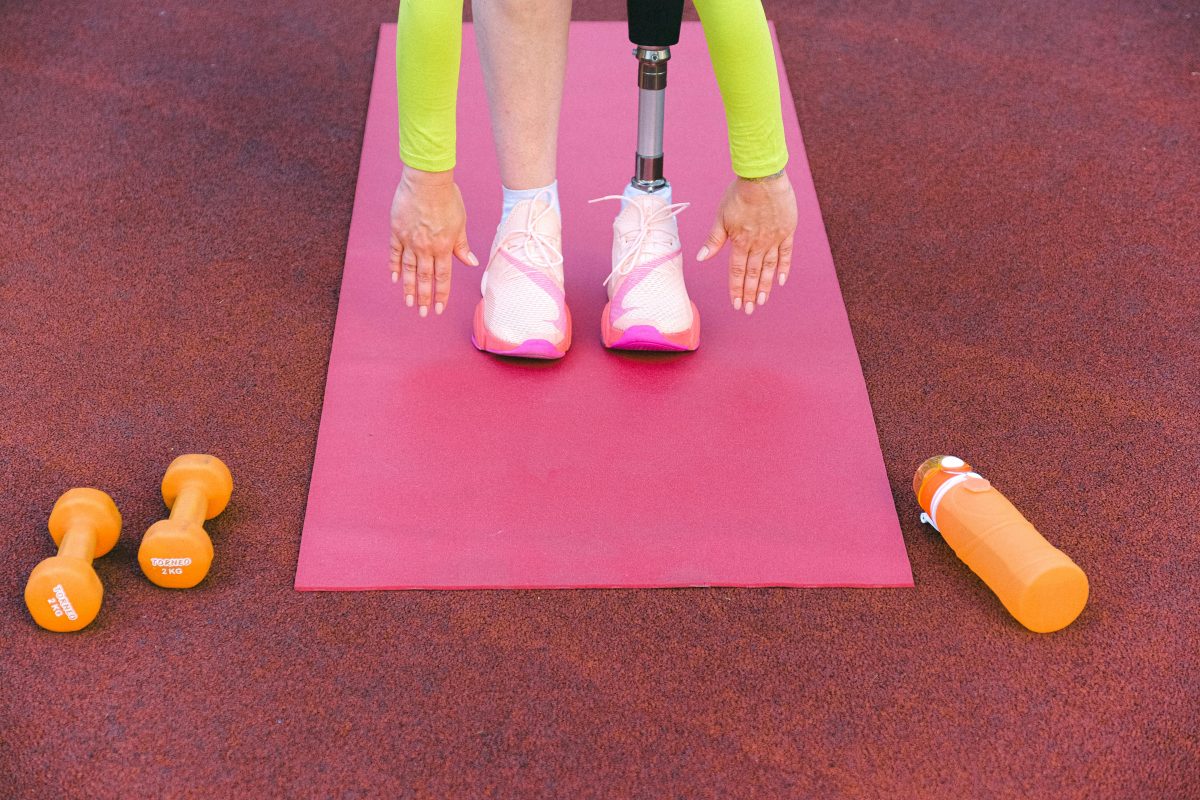Last Updated on: 14th July 2024, 09:04 am
Understanding Autoimmune Conditions and Their Impact on Physical Activity

Autoimmune conditions are a complex group of disorders where the immune system mistakenly attacks the body’s own cells. This internal battle can lead to widespread inflammation and tissue damage, affecting various organs and bodily functions. Among the myriad of challenges these conditions present, one significant area impacted is physical activity. The relationship between autoimmune diseases and exercise tolerance is intricate, as symptoms like fatigue, joint pain, and muscle weakness can severely limit one’s ability to engage in regular physical activities.
However, the importance of exercise in managing autoimmune conditions cannot be overstated. Regular, moderate exercise has been shown to improve cardiovascular health, increase energy levels, and enhance overall well-being. It can also play a crucial role in managing symptoms and reducing the risk of complications associated with autoimmune diseases. The key is finding the right balance and type of exercise that suits one’s individual health status and limitations.
- Adapting exercise routines to accommodate the fluctuating nature of autoimmune conditions is essential.
- Tailored exercise programs, developed in consultation with healthcare professionals, can offer a pathway to improved health and quality of life for those navigating the complexities of autoimmune diseases.
The Importance of a Tailored Exercise Plan

Every individual’s body responds differently to exercise, especially when managing an autoimmune condition. Recognizing personal needs and limitations is the first step toward a healthier, more active life. A tailored exercise plan is not a luxury; it’s a necessity. It respects our unique health landscapes, ensuring that physical activity strengthens rather than depletes us.
Consulting with healthcare professionals is crucial in crafting this personalized exercise blueprint. They provide invaluable insights into how different exercises might interact with your condition, guiding you toward activities that promote health without risk. This partnership paves the way for a fitness regimen that is as safe as it is effective.
- Modifications for common exercises are often necessary and beneficial. For instance, someone with joint pain might swap high-impact running for swimming or water aerobics, reducing stress on the joints while still enhancing cardiovascular health.
- Similarly, incorporating resistance bands instead of free weights can offer muscle-strengthening benefits without the added strain.
Ultimately, a tailored exercise plan empowers those with autoimmune conditions to take control of their physical well-being. It’s about making informed choices, understanding personal limits, and gradually building strength and resilience. With the right approach, exercise becomes a valuable ally in the journey toward health and vitality.
Safe Exercise Practices for Individuals with Autoimmune Conditions

Embarking on a fitness journey with an autoimmune condition requires a thoughtful approach to prevent injury and ensure the body’s needs are met. Warm-up and cool-down routines are the cornerstones of this approach. A gentle warm-up prepares the body for exercise, increasing blood flow to the muscles and reducing the risk of strains or sprains. Similarly, cooling down helps the body transition back to a state of rest, reducing the likelihood of post-exercise discomfort.
- Listening to your body is crucial. Signs of overexertion, such as excessive fatigue, joint or muscle pain, and dizziness, signal it’s time to stop and rest.
- Rest and recovery are not just beneficial; they are integral to a successful exercise routine. Adequate rest allows the body to heal and strengthen, particularly important for individuals managing autoimmune conditions.
By prioritizing warm-up and cool-down routines, staying vigilant for signs of overexertion, and embracing rest and recovery, individuals with autoimmune conditions can safely enjoy the benefits of exercise. This balanced approach promotes physical well-being while respecting the body’s limits, paving the way for a healthier, more active life.
Nutrition and Hydration Strategies to Support Fitness Goals

For individuals with autoimmune conditions, tailoring nutrition to meet specific needs is paramount. The body’s internal environment can significantly influence symptom expression and overall well-being. Thus, understanding and addressing nutritional needs becomes a cornerstone of managing autoimmune conditions effectively.
Hydration plays a critical role in both performance and recovery. Adequate fluid intake ensures that the body functions optimally, facilitating nutrient transport and waste removal. It also helps regulate body temperature during exercise, preventing overheating and reducing the risk of heat-related illnesses. For those with autoimmune conditions, staying hydrated can help mitigate fatigue, one of the most common symptoms, enhancing exercise tolerance and recovery.
- Incorporating anti-inflammatory foods into one’s diet offers additional benefits. Foods rich in omega-3 fatty acids, antioxidants, and phytonutrients can help reduce inflammation, supporting the body’s recovery process.
- Options like fatty fish, berries, leafy greens, and nuts not only nourish the body but also bolster its defenses against inflammation-induced discomfort.
Ultimately, a well-considered nutrition and hydration strategy is essential for anyone looking to maintain an active lifestyle while managing an autoimmune condition. By focusing on anti-inflammatory foods and ensuring adequate hydration, individuals can support their fitness goals, improve their quality of life, and navigate the complexities of autoimmune conditions with greater ease.
Incorporating Mind-Body Wellness Techniques

For individuals navigating the complexities of autoimmune conditions, incorporating mind-body wellness techniques can be transformative. Yoga, tai chi, and Pilates, for instance, offer gentle yet powerful ways to enhance physical health. These practices not only improve flexibility and strength but also promote a harmonious balance between the mind and body. For those with autoimmune conditions, such activities can be particularly beneficial, helping to manage symptoms and improve overall well-being.
Yoga, with its emphasis on mindful movement and breath control, can significantly reduce stress, a known trigger for autoimmune flare-ups. Similarly, tai chi’s fluid motions foster a sense of calm and balance, while Pilates strengthens the core and improves posture, reducing the strain on the body. Together, these practices can help mitigate the physical discomfort associated with autoimmune conditions, making them a valuable addition to any fitness regimen.
Mindfulness and meditation go hand in hand with physical practices, offering profound benefits for physical health. By fostering a state of mental calm and focus, these techniques can lower stress levels, reduce inflammation, and enhance immune function. Regular meditation can lead to better pain management and a more positive outlook, both of which are crucial for individuals dealing with chronic conditions.
Stress management is not just beneficial; it’s essential for autoimmune health. Strategies such as deep breathing exercises, progressive muscle relaxation, and guided imagery can help keep stress at bay. Recognizing the signs of stress and having tools to address it can prevent exacerbation of symptoms, making stress management a key component of a holistic approach to autoimmune wellness.
Ultimately, incorporating mind-body wellness techniques into one’s lifestyle can lead to significant improvements in health and quality of life for those with autoimmune conditions. By embracing practices that strengthen the body and soothe the mind, individuals can navigate their fitness journey with greater ease and resilience.
Leveraging Technology and Community for Support and Motivation

Embracing technology can revolutionize the fitness journey for those with health conditions. Fitness apps and wearable technology, tailored for individuals with specific health needs, provide personalized insights, track progress, and adjust routines in real-time. These tools empower users to exercise with confidence, knowing their unique health parameters are accounted for.
Online communities and support groups are invaluable resources, offering motivation and advice. They serve as platforms where individuals can share experiences, celebrate milestones, and find encouragement on tough days. The collective wisdom found in these groups can guide newcomers through their initial steps, helping them to avoid common pitfalls and stay committed to their goals.
- Success stories resonate deeply, often becoming the spark that ignites a newcomer’s motivation.
- They illustrate the power of perseverance and provide a roadmap for achieving similar results.
- Witnessing others overcome similar challenges can inspire and provide practical strategies for managing one’s own fitness journey.
Together, technology and community create a supportive ecosystem. They ensure that individuals with autoimmune conditions are not alone in their quest for health, offering tools and companionship every step of the way.
Evaluating Progress and Adjusting Goals

Setting realistic and achievable fitness goals is the cornerstone of any successful exercise regimen, especially for those with autoimmune conditions. It’s about striking a balance; goals should stretch your capabilities but remain within reach. This approach fosters motivation and prevents the discouragement that can come from setting the bar too high.
Regular check-ins with healthcare professionals are invaluable. These sessions provide an opportunity to assess how your body is responding to the current exercise plan and make necessary adjustments. Whether it’s tweaking your routine to avoid overexertion or addressing new symptoms, these consultations ensure your fitness journey aligns with your health status.
- Adjusting exercise plans based on symptoms and progress is crucial.
- If a particular activity exacerbates your condition, it may be time to try something new.
- Similarly, as you build strength and endurance, increasing the intensity or duration of your workouts can help you continue to make progress.
Ultimately, navigating fitness with an autoimmune condition is a journey of self-discovery and adaptation. By setting realistic goals, regularly consulting with healthcare professionals, and being willing to adjust your plan, you can maintain an active lifestyle that supports your overall well-being.
In Closing
Exercise empowers, even amidst autoimmune challenges. It’s a testament to resilience, transforming limitations into strengths. Through personalized plans and mindful practices, individuals navigate the delicate balance between activity and rest, fostering both physical and mental well-being. This journey, supported by technology and community, underscores the importance of adaptability and self-compassion. Let’s embrace this path, celebrating each step towards health and vitality.
Navigating Fitness with Autoimmune Conditions FAQs
Yes, excessive or high-intensity exercise can trigger flare-ups in some individuals with autoimmune conditions. It’s crucial to monitor your body’s response to exercise and adjust intensity and duration accordingly. Balancing activity with adequate rest and recovery is key to avoiding exacerbations.
Yes, exercise can help manage autoimmune conditions by reducing inflammation and improving overall well-being. Regular physical activity can boost your immune system’s function and help mitigate fatigue, a common symptom in many autoimmune diseases. It’s important to choose low-impact exercises and listen to your body to avoid overexertion.
Yes, yoga and mindfulness practices can be extremely beneficial for individuals with autoimmune conditions by reducing stress, improving flexibility, and enhancing overall quality of life. These practices can help lower inflammation, improve mental health, and provide a gentle form of physical activity that supports the body’s natural healing processes. Incorporating regular yoga and mindfulness sessions into your routine can offer both physical and emotional benefits.
Monitoring your body’s response can be done by keeping a detailed exercise diary, noting how you feel during and after each session. Paying attention to signs of fatigue, muscle or joint pain, and any other symptoms specific to your condition can help you adjust your exercise routine accordingly. Regular check-ins with a healthcare provider can also provide insights into how your exercise regimen is affecting your condition.
Exercise-induced stress, when managed properly, can actually have a beneficial effect on autoimmune conditions by reducing overall stress levels and improving immune function. However, excessive physical stress can lead to increased inflammation and potentially trigger a flare-up. Balancing exercise with adequate rest and recovery is essential to minimize negative stress effects.
It’s generally advised to aim for at least 150 minutes of moderate-intensity exercise per week, spread out over several days. However, the frequency and duration should be adjusted based on individual tolerance, symptoms, and the specific autoimmune condition. Starting slowly and gradually increasing the intensity and duration of workouts can help prevent flare-ups.
Strength training can be safe and beneficial for individuals with autoimmune conditions, provided it is done with proper form and moderate intensity. It can help build muscle, increase bone density, and improve metabolic health. However, it’s important to start slowly under the guidance of a professional and to avoid overloading the joints.
It’s important to start with low-intensity exercises and gradually increase intensity, always listening to your body’s signals. Staying hydrated, avoiding extreme temperatures, and wearing appropriate clothing can also help manage symptoms and prevent flare-ups. Consulting with healthcare professionals before starting any new exercise regimen is advisable to ensure safety and effectiveness.
Diet plays a crucial role in exercising with an autoimmune condition, as certain foods can help reduce inflammation and provide the energy needed for physical activity. Eating a balanced diet rich in fruits, vegetables, lean proteins, and healthy fats can support exercise efforts and overall health. Avoiding inflammatory foods and those that trigger individual sensitivities is also important to manage symptoms and improve exercise performance.
Low-impact activities such as swimming, walking, and yoga are often recommended for individuals with autoimmune conditions. These exercises can help improve cardiovascular health, flexibility, and strength without putting too much strain on the body. Consulting with a healthcare provider or a physical therapist can help tailor an exercise program to your specific needs and limitations.
Orlando is a all round athlete from Australia, now resident in Germany. His sports of passion of American Football(Offensive line), weight training and indoor rock climbing where he uses his 195cm wing span to his advantage.



